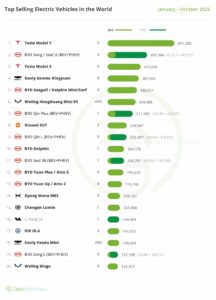Many manufacturers are evaluating the technology in pilot projects, and a handful of automakers have released vehicles with bi-directional capacity on the market. Trials are examining both vehicle-to-home and vehicle-to-grid capability; however, commercial options are mostly focused on vehicle-to-home owing to regulatory and financial constraints.
Although it is already in use by manufacturers, the CCS charging standard looks to require further development before it can be approved for complete vehicle-to-grid capability.
Bi-directional charging’s utility is uncertain, and its adoption is hampered by the large initial investment required for suitable charging equipment.
Bi-directional charging has a value of between $400 and $1,200 per car every year, according to studies and research reports. The cost varies by area, power rates that are offered, the length of time the vehicle is accessible, and battery capacity.
Currently, it would take between five and ten years to recover the cost of the external equipment required to enable bi-directional charging. In order to make the technology more appealing, the market is attempting to lower these prices.
Source: BloombergNEF
Get ‘FREE OF CHARGE’ access to 400+ other valuable EV Market Reports in our database. Enjoy reading!







